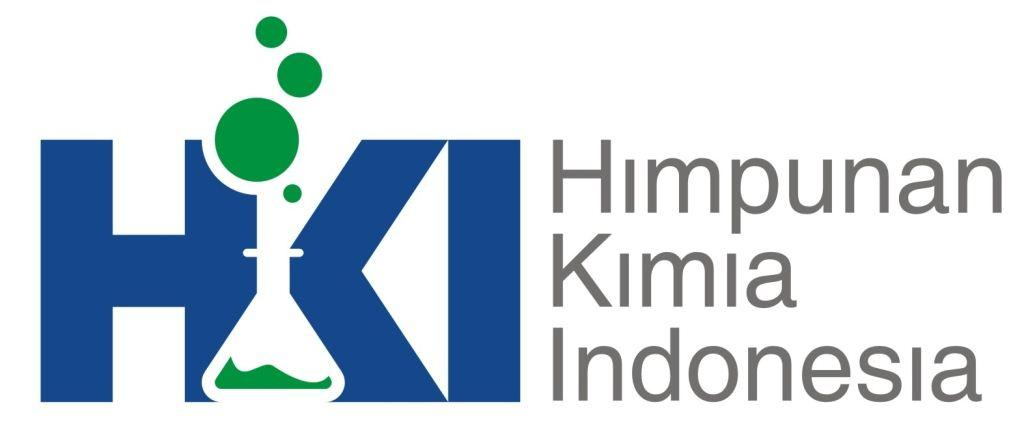Garciniaxanthone E and 12b-Hydroxy-des-D-garcigerrin A from The Tree Bark Garcinia dulcis and their Inhibitory Properties against Receptor Tyrosine Kinases
Abstract
Keywords
References
Hanahan D, Weinberg RA. Hallmarks of cancer: The next generation. Cell. 2011;144(5):646-674. doi:10.1016/j.cell.2011.02.013
Newman DJ, Cragg GM. Natural Products as Sources of New Drugs from 1981 to 2014. J Nat Prod. 2016;79(3):629-661. doi:10.1021/acs.jnatprod.5b01055
Bauer A, Brönstrup M. Industrial natural product chemistry for drug discovery and development. Nat Prod Rep. 2014;31(1):35-60. doi:10.1039/c3np70058e
Meegan MJ, O’boyle NM. Special Issue “Anticancer Drugs 2021.” Pharmaceuticals. 2022;15(4). doi:10.3390/ph15040479
Yin B, Fang DM, Zhou XL, Gao F. Natural products as important tyrosine kinase inhibitors. Eur J Med Chem. 2019;182:111664. doi:10.1016/j.ejmech.2019.111664
Jiao Q, Bi L, Ren Y, Song S, Wang Q, Wang Y shan. Advances in studies of tyrosine kinase inhibitors and their acquired resistance. Mol Cancer. 2018;17(1):1-12. doi:10.1186/s12943-018-0801-5
Hemshekhar M, Sunitha K, Santhosh MS, et al. An overview on genus garcinia: Phytochemical and therapeutical aspects. Phytochem Rev. 2011;10(3):325-351. doi:10.1007/s11101-011-9207-3
Hemshekhar M, Sunitha K, Santhosh MS, et al. An overview on genus garcinia: Phytochemical and therapeutical aspects. Phytochem Rev. 2011;10(3):325-351. doi:10.1007/s11101-011-9207-3
Nhan N-T, Nguyen P-H, Tran M-H, Nguyen P-D-N, Tran D-T, To D-C. Anti-inflammatory xanthone derivatives from Garcinia delpyana. J Asian Nat Prod Res. 2021;23(5):414-422. doi:https://doi.org/10.1080/10286020.2020.1767079
Dewi IP, Dachriyanus, Aldi Y, et al. Comprehensive studies of the anti-inflammatory effect of tetraprenyltoluquinone, a quinone from Garcinia cowa Roxb. J Ethnopharmacol. 2024;320(5):414-422. doi:https://doi.org/10.1080/10286020.2020.1767079
Wairata J, Sukandar ER, Fadlan A, Purnomo AS, Taher M, Ersam T. Evaluation of the antioxidant, antidiabetic, and antiplasmodial activities of xanthones isolated from garcinia forbesii and their in silico studies. Biomedicines. 2021;9(10). doi:10.3390/biomedicines9101380
Ibrahim SRM, Mohamed GA, Elfaky MA, et al. Garcixanthone A, a new cytotoxic xanthone from the pericarps of Garcinia mangostana. J Asian Nat Prod Res. 2019;21(3):291-297. doi:10.1080/10286020.2017.1423058
Angami T, Wangchu L, Debnath P, et al. Garcinia L.: a gold mine of future therapeutics. Genet Resour Crop Evol. 2021;68(1):11-24. doi:10.1007/s10722-020-01057-5
Kaennakam S, Siripong P, Tip-Pyang S. Kaennacowanols A-C, three new xanthones and their cytotoxicity from the roots of Garcinia cowa. Fitoterapia. 2015;102:171-176. doi:10.1016/j.fitote.2015.03.008
Protiva P, Hopkins ME, Baggett S, et al. Growth inhibition of colon cancer cells by polyisoprenylated benzophenones is associated with induction of the endoplasmic reticulum response. Int J Cancer. 2008;123(3):687-694. doi:10.1002/ijc.23515
Nchiozem-Ngnitedem V-A, Mukavi J, Omosa LK, Kuete V. Chapter Four - Phytochemistry and antibacterial potential of the genus Garcinia. In: KUETE VBT-A in BR, ed. African Flora to Fight Bacterial Resistance, Part II: The Best Source of Herbal Drugs and Pharmaceuticals. Vol 107. Academic Press; 2023:105-175. doi:https://doi.org/10.1016/bs.abr.2022.08.014
Singh A, Singh B, Gautam A, Navneet. Chapter 7 - Herbal-based resources against exanthematous viral infections and other viral diseases. In: Egbuna CBT-CDD, ed. Drug Discovery Update. Elsevier; 2022:173-202. doi:https://doi.org/10.1016/B978-0-323-95578-2.00013-3
Abdullah I, Phongpaichit S, Voravuthikunchai SP, Mahabusarakam W. Prenylated biflavonoids from the green branches of Garcinia dulcis. Phytochem Lett. 2018;23(November 2017):176-179. doi:10.1016/j.phytol.2017.12.004
Thepthong P, Phongpaichit S, Carroll AR, Voravuthikunchai SP, Mahabusarakam W. Prenylated xanthones from the stem bark of Garcinia dulcis. Phytochem Lett. 2017;21(May):32-37. doi:10.1016/j.phytol.2017.05.014
Sever B, Altıntop MD, Radwan MO, et al. Design, synthesis and biological evaluation of a new series of thiazolyl-pyrazolines as dual EGFR and HER2 inhibitors. Eur J Med Chem. 2019;182:111648. doi:10.1016/j.ejmech.2019.111648
Sever B, Altıntop MD, Özdemir A, et al. In Vitro and In Silico Evaluation of Anticancer Activity of New Indole-Based 1,3,4-Oxadiazoles as EGFR and COX-2 Inhibitors. Molecules. 2020;25(21):5190. doi:10.3390/molecules25215190
Hermawati E, Ellita SD, Juliawaty LD, Hakim EH, Syah YM, Ishikawa H. Epoxyquinophomopsins A and B from endophytic fungus Phomopsis sp. and their activity against tyrosine kinase. J Nat Med. 2021;75(1):217-222. doi:10.1007/s11418-020-01454-1
Krieger E, Vriend G. New ways to boost molecular dynamics simulations. J Comput Chem. 2015;36(13):996-1007. doi:10.1002/jcc.23899
Stamos J, Sliwkowski MX, Eigenbrot C. Structure of the epidermal growth factor receptor kinase domain alone and in complex with a 4-anilinoquinazoline inhibitor. J Biol Chem. 2002;277(48):46265-46272. doi:10.1074/jbc.M207135200
Minami H, Takahashi E, Kodama M, Fukuyama Y. Three xanthones from Garcinia Subelliptica. Phytochemistry. 1996;41(2):629-633. doi:10.1016/0031-9422(95)00567-6
Isabelle Sordat-Diserens, Andrew Marston, Matthias Hamburger, Kurt Hostettmann CR. Novel Prenylated Xanthones fromGarcinia gerrardii HARVEY. Helv Chim Acta. 1989;72(5):1001-1007. doi:https://doi.org/10.1002/hlca.19890720518
Russo A, Paret C, Alt F, et al. Ceritinib-induced regression of an insulin-like growth factor-driven neuroepithelial brain tumor. Int J Mol Sci. 2019;20(17):1-19. doi:10.3390/ijms20174267
Seebacher NA, Stacy AE, Porter GM, Merlot AM. Clinical Development of Targeted and Immune Based Anticancer Therapies. Vol 38. Journal of Experimental & Clinical Cancer Research; 2019. doi:10.1186/s13046-019-1094-2
Danova A, Nguyen DV, Toyoda R, et al. 3′,4′,5′-trimethoxy- and 3,4-dimethoxychalcones targeting A549 cells: Synthesis, cytotoxic activity, and molecular docking. J Mol Struct. 2023;1275:134572. doi:https://doi.org/10.1016/j.molstruc.2022.134572
Abate M, Pagano C, Masullo M, et al. Mangostanin, a Xanthone Derived from Garcinia mangostana Fruit, Exerts Protective and Reparative Effects on Oxidative Damage in Human Keratinocytes. Pharmaceuticals. 2022;15(1):84. doi:10.3390/ph15010084
Krieger E, Vriend G, Stamos J, et al. Structure of the epidermal growth factor receptor kinase domain alone and in complex with a 4-anilinoquinazoline inhibitor. J Comput Chem. 2022;19(1):46265-46272. doi:10.1002/jcc.23899
Hermawan F, Jumina, Pranowo HD, Sholikhah EN, Iresha MR. Molecular Docking Approach For Design and Synthesis of Thioxanthone Derivatives as Anticancer Agents. ChemistrySelect. 2022;7(46):1-7. doi:10.1002/slct.202203076
DOI: 10.15408/jkv.v10i1.38159
Refbacks
- There are currently no refbacks.
Copyright (c) 2024 fera Kurniadewi, Amadita Shafa Aqilah, Irma Ratna Kartika, muktiningsih nurjayadi, Elvira Hermawati, Ade Danova

This work is licensed under a Creative Commons Attribution-ShareAlike 4.0 International License.


